
On 15 November 2023, Right to Remain held another online discussion event on the Illegal Migration Act. This event was the fourth in a series of events we have hosted on the new law. Some have happened in person, for example in Manchester, and some have happened online. These events are designed to prepare our communities for the impact of this punishing law, and for us to share what we know so far.
This event was on the same day as the Supreme Court decision on the Rwanda case. Thankfully, we were able to breathe a small collective sigh of relief – the Supreme Court dismissed the Home Office’s appeal, meaning that the Rwanda plan has been blocked.
What happened in this session?
After welcoming participants and introducing ourselves to one another, we offered an overview of the Illegal Migration Act as it currently stands. It is a complex picture, not least because in the 4 months since this Act has been law, most of its sections have not been enforced. There are also little to no regulations accompanying sections which are in force, and even sections which have been enforced seem unworkable. This means there are a lot of unanswered questions, and a lot of fear and uncertainty about how the Illegal Migration Act will affect people.
‘We have a lot of questions but not a lot of answers’.
After a run-through of the Illegal Migration Act, we split up into breakout rooms to consider the impacts of the Illegal Migration Act on the individual, community/organisational, and societal levels. We asked ourselves what people in the system need to know now, and how they are feeling. We also asked ourselves how we should respond to our communities’ needs, especially when we are not sure when many of the provisions in the Act will be implemented. We asked ourselves how this Act will change how migration and asylum will be perceived and treated across society.
We highlighted that solidarity with migrants is increasingly policed and threatened – as evidenced by the recent news that the immigration minister Robert Jenrick has been trying to block a charity’s access to hotels housing asylum seekers. We must be unified in the face of this attack on solidarity. We also considered how to counteract far-right narratives in certain areas where new asylum hotels have been established with little preparation.
What did we gain from this session?
What was so remarkable about this event was the breadth of expertise present. We were joined by participants from migrant communities, as well as people working in housing, health, unions, higher education and local authorities. This range of experience on the call provided a brilliant networking opportunity for us to come together and consider questions about the IMA from different perspectives and to share our collective knowledge.
Most importantly, hearing from so many different people demonstrated clearly to us that the effects of the Illegal Migration Act will be felt widely across society by many people. This is especially the case as the Illegal Migration Act is designed to exclude more people from the asylum and immigration systems completely, so is likely to lead to an increase in the numbers of people who become undocumented and fall outside traditional asylum and immigration routes. This also means more people will be at risk of detention, destitution and exploitation: and we must be prepared for these changes. The hostile environment affects all of us, and we need to come together to build a bigger network of radical solidarity.



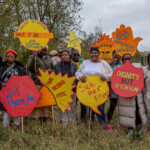
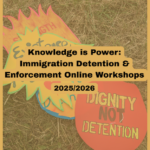
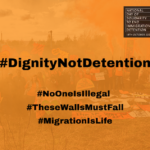


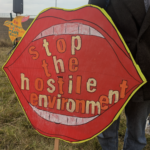


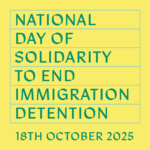
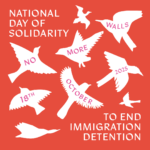
Discussion: